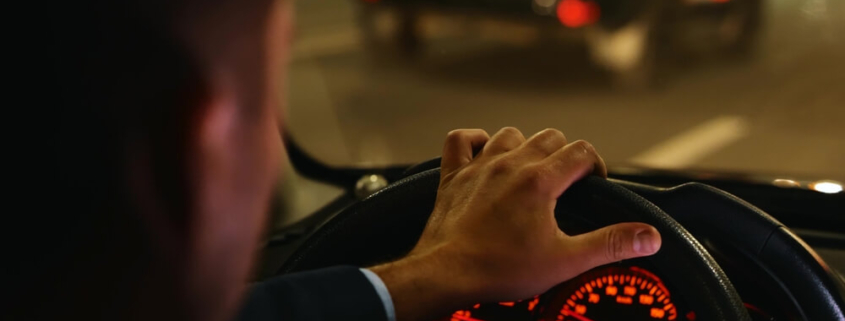How To Stay Safe When Driving a Car at Night
A large number of car accidents occur during nighttime hours and there is no foolproof way of avoiding them. In fact, as per a report by the National Safety Council, the risk of a fatal car crash is three times higher at night as compared to the daytime.
There are a few things you can do to protect yourself and lower the risk of getting involved in an auto accident while driving at night. If you or someone you love was injured in a car accident because of the fault of another, an experienced car accident attorney can help you obtain your rightful compensation.
Lower Your Risk of Driving in the Dark
The most obvious danger of driving at night is darkness. It gets harder to see the things around you, especially when the lighting on the road is poor. This increases the odds of getting involved in an accident if the other driver is negligent.
High-beam headlights can only help you see up to 500 feet in front of you. This reduces your reaction time to things, especially if you or another driver is going at a high speed.
These are a few things to improve your visibility at night:
- Clean your headlights
- Dim the dashboard lights
- Give yourself more time to react by reducing the speed
- Clean windshields regularly to remove any streaks that can create a glare
- Make sure your headlights are aimed correctly
You should be diligent about turning on your headlights whenever the visibility appears to be low. It’s always better to be safe than sorry. You can turn your headlights on even if you don’t see other drivers turning theirs on.
Be Mindful of Poor Night Vision
Nighttime driving becomes more difficult for drivers over the age of 50. This is because of poor night vision. This is especially true for people with degenerative eye diseases and cataracts. In addition, older drivers have slower reaction times as well.
These are a few suggestions made by the American Optometric Association on how to drive safely at night:
- Slow down
- Have an annual vision exam
- Update your prescription glasses if you wear them
- Don’t drive when fatigued
- Speak with your doctor about any side effects related to prescription drugs
- Avoid talking on the phone and to other passengers
If you work a night shift, you may invariably get behind the wheel with some level of tiredness. The same holds true for drivers on long road trips. The NHTSA reports that tired drivers have the same reaction time as drunk drivers. Their awareness, perception, and ability to brake is significantly reduced.
You should try and carpool with people that are not tired. If there is no other way, you should stop every 2 hours to give yourself a break. It’s crucial that you pull up somewhere safe, such as a 24-hour store or a truck stop. Many drivers find it refreshing to take a short nap and rest their eyes.
It’s best to avoid traveling during times when you would normally be sleeping. The National Sleep Foundation has recommended a minimum of 7 hours of sleep each night. You should avoid getting behind the wheel when you know you’re tired.
Reduce Speed While Driving at Night
During autumn and winter, the sun sets early, and peak traffic often happens in the dark. This makes commuting dangerous. You should always reduce your speed during late evening or night and follow all traffic rules. This is especially important if there are other elements, like rain, snow, ice, and sleet, which increase the risk of an accident.
You should avoid multitasking and never change lanes abruptly during nighttime driving. It is easy to switch to autopilot when navigating the same routes on a daily basis – and you may not pay as much attention to where you are going. But when it is dark, you need to stay more alert and pay attention to the traffic even if you are using autopilot.
Steer Clear of Drunk Drivers
The biggest danger of nighttime driving is coming across drunk drivers on the road. Many of these drivers choose not to take a rideshare or taxi home because they believe they are not that drunk. It can seem impossible to prepare for intoxicated drivers. However, there are a few telltale signs that can help you avoid a crash.
For instance, if you notice a driver swerving dangerously in front of you, you should note down their license plate number and alert a 911 dispatcher. Never try to maneuver in front of their car or make attempts to slow the driver down.
You should also avoid drivers that don’t have their headlights turned on. Honk your horn if you come across someone taking up two lanes on the interstate.
You should watch for unnecessarily wide turns and erratic braking. Avoid any driver that makes such maneuvers. It’s best to request a ride from someone else or hire a taxi if you had a few drinks.
Our Personal Injury Attorneys Will Fight to Maximize Your Damages
The experienced, capable, and resourceful car accident attorneys at Garmo & Garmo, LLP have helped numerous victims of nighttime car accidents get the justice and the maximum financial compensation they deserved. To request your free, no-obligation consultation with our dedicated personal injury lawyers, call us at 619-441-2500 or complete this online form.




